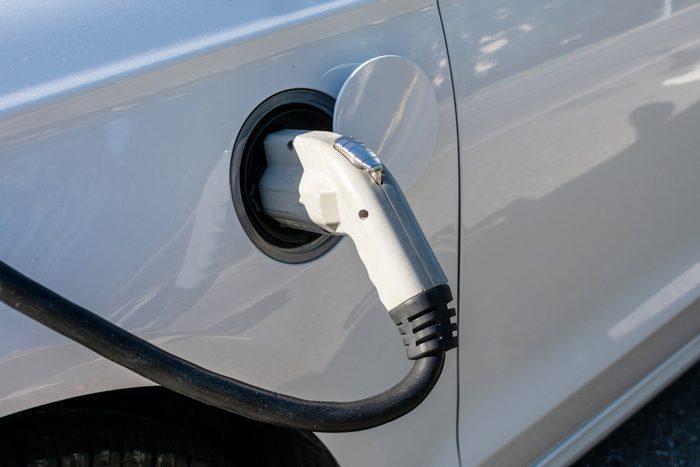Do Electric Cars Need Oil Changes?

If the engine is battery-operated, do electric cars need oil changes? Great question! Here's what you need to know.
The maintenance and service differences between the engine in an electric vehicle (EV) and the internal combustion engine (ICE) in a gas-powered vehicle are like night and day.
An ICE motor has significantly more moving parts than an EV one. That’s why an ICE motor needs motor oil to lubricate all its moving parts, allowing it operate with minimal friction to prevent overheating and internal engine damage.
Curiously, there seems to be little public interest in EV motors and how they work. While the hottest topics around EVs are battery life and driving range, little information on EV motors and their maintenance has been published. That may be because there isn’t much choice. It’s not like you’re deciding among a V-8, V-6 Turbo or four-cylinder engine when you’re buying a new vehicle.
But here’s one key question: Do electric cars need oil changes? Read on to find out.
Do Electric Cars Use Oil?
No. An EV motor doesn’t need oil to lubricate pistons or dozens of other components that make up an ICE. An ICE requires motor oil and other fluids to cool, clean and cushion engine parts running at high speeds.
The vast majority of EV motors are air cooled. With new larger EV trucks with bigger, more powerful electric motors hitting the market, closed-loop, liquid thermal-management cooling systems independent of the battery will become more common.
Some EV gearboxes use fluid specifically for EV transmissions. Consult your owner’s manual to determine recommended service intervals.
Do Electric Cars Need Oil Changes?
No. Battery powered EVs require less frequent and fewer services than fossil fuel powered cars.
Eliminating motor oil and filter changes lowers the overall costs of owning an EV. But that doesn’t mean they’re maintenance-free. Check your owner’s manual for other maintenance services unique to EVs.



